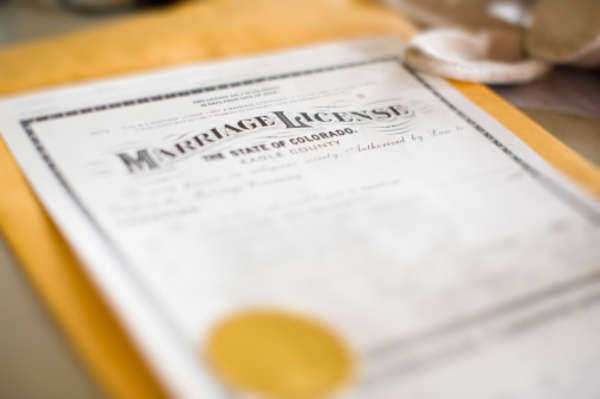Foreign-Born Asians Most Likely to Marry

Foreign-Born Asians Most Likely to Marry: A Comprehensive Look at the Statistics and Trends
Marriage is a universal symbol of love, commitment, and companionship. Across cultures, getting married is one of the most significant milestones in a person’s life. While the decision to get married may differ from person to person, there are some interesting and noteworthy trends emerging when it comes to marriages involving foreign-born Asians. In this article, we will explore the latest statistics and trends on the subject and delve deeper into the reasons behind them.
Overview of Marriages Involving Foreign-Born Asians
The term ‘foreign-born’ refers to individuals who were born outside of their residing country, and the term ‘Asians’ typically comprises individuals from East and Southeast Asia, namely China, Japan, Korea, the Philippines, Vietnam, Thailand, and Indonesia. Foreign-born Asians are experiencing a surge in popularity within the marriage market, both in the Asian immigrant community and among non-Asian Americans. According to a recent report by the National Asian American Survey, 46% of Asian Americans are married, compared to only 29% of the general U.S. population.
One of the most striking findings in the survey was that foreign-born Asians were more likely to be married than U.S.-born Asians. The report revealed that 59% of foreign-born Asians are married, versus 49% of U.S.-born Asians. The report also found that a higher percentage of foreign-born Asians were also likely to be in a relationship, with 78% having a significant other compared to only 62% of U.S.-born Asians.
Why are Foreign-Born Asians More Likely to Marry?
There are several reasons why foreign-born Asians may be more likely to marry than U.S.-born Asians. The following are some of the most prominent factors that have contributed to this trend:
1. Cultural Differences
There are significant differences in dating, marriage, and relationship practices between Asian and Western cultures. In Asian cultures, the emphasis is on family and community values, and traditional gender roles are reinforced. In contrast, Western cultures emphasize individualism and personal preferences. Foreign-born Asians who have retained their cultural practices may prefer to marry someone from a similar background with the same values, resulting in higher marriage rates.
2. Education and Income
Foreign-born Asians are more likely to have higher levels of education and income compared to their U.S.-born counterparts. As a result, they may have a greater pool of desirable partners to choose from, leading to higher marriage rates.
3. Immigration Status
Being foreign-born may also play a role in one’s decision to get married. For some, marriage may be a way to gain permanent residence in the U.S. or citizenship. Some may also prefer to marry someone from their home country or another Asian country to have a more stable and familiar familial and social environment.
Trends in Interracial Marriages Involving Foreign-Born Asians
As societies around the world become increasingly multicultural, interracial marriages are becoming more common. In the U.S., about 1 in 6 couples are in an interracial marriage, a significant increase from just 3% in 1967. Here are some of the most notable trends when it comes to interracial marriages involving foreign-born Asians:
1. Foreign-Born Asians are More Likely to Marry Outside of Their Race
The National Asian American Survey found that foreign-born Asians were more likely to marry someone from a different race than their U.S.-born counterparts. The report showed that 36% of foreign-born Asians are married to someone outside of their race, compared to only 17% of U.S.-born Asians.
2. More Asian Women are Marrying Outside of Their Race
Of all the racial groups in the U.S., Asian women are the most likely to marry outside of their race. According to data from the Pew Research Center, 36% of Asian women who got married in 2015 married someone who was not Asian, compared to 17% of Asian men. The Center also noted that Asian women were more likely to marry non-Asian men who were higher-educated and wealthier than themselves.
3. White Men are the Most Common Spouses of Asian Women
Among all the non-Asian spouses of Asian women, white men are the most common. Pew Research Center data revealed that 29% of Asian women who got married in 2015 had a white spouse, followed by 17% who married a Hispanic man, 16% who married an Asian man, and 12% who married a black man.
4. Asian Men are the Least Likely to Marry Outside of Their Race
Of all the racial groups in the U.S., Asian men are the least likely to marry outside of their race. According to data from the Pew Research Center, only 8% of Asian men who got married in 2015 married someone who was not Asian, compared to 36% of Asian women.
Conclusion
Marriage continues to be an essential part of life for Asians, and the desire to get married hasn’t diminished, even among those who have moved to the U.S. In some ways, foreign-born Asians are leading the way in terms of marriage trends, and there are several reasons behind them, including cultural values, education and income, and immigration status.
The rise in interracial marriages involving foreign-born Asians also highlights the growing multiculturalism of American society. While the trend of foreign-born Asians marrying outside of their race is still more prevalent among women, the statistics show that Asians’ desire for their cultural values hasn’t, by any means, hindered their chances of finding true love outside of their race.
As the number of foreign-born Asians in the U.S. continues to grow, so too will the innovation in the marriage arena, and the data that accompanies it. It wouldn’t come as a surprise if the trend lines continue to rise in favor of foreign-born Asians and their unique interpretations of marriage in the U.S.
On October 16, 2012, the Census Bureau announced that foreign-born Asian Americans are the most likely to marry than any other foreign-born or native-born, self-identified group in the United States. Foreign-born Asian Americans are the most likely to live in multigenerational households as well.
The findings were released in the 2011 American Community Survey that was just recently released by the Census Bureau.
According to the Survey, about 65.8 percent of foreign-born Asian Americans are married. About 58.3 percent of all other foreign-born Americans are married, and 46.5 percent native-born Americans are married. Additionally, about 9.4 percent of foreign-born Asian Americans live in a multigenerational home (with three or more generations), while only 4.9 percent of native-born Americans live in a multigenerational household. U.S. citizens born in the Philippines or Vietnam have the most multigenerational households.
According to the Census Bureau, about 13 percent of all 311.6 million Americans were born outside of the United States. Foreign-born Asian Americans accounted for one-fourth of U.S. citizens born out of the country. About 11.6 million Asian Americans were born outside of the United States.
The following statistics were also released by the 2011 American Community Survey:
• about 2.2 million foreign-born citizens are from China; about 1.9 million are from India; about 1.8 million are from the Philippines; about 1.3 million are from Vietnam; and about 1.1 million are from Korea
• about 83 percent the Asian-born population who are 25 years of age or older have a high school diploma, and about 48 percent have a bachelor’s degree or higher
• foreign-born Asians are the most likely to become naturalized citizens (about 58 percent)
• the states with more than half of the foreign-born population from Asia include California (about 3.7 million), New York (about 1.2 million), Texas (about 778,000), and New Jersey (about 593,000)
Source: https://www.census.gov/newsroom/releases/archives/american_community_survey_acs/cb12-198.html
Foreign-Born Asians Most Likely to Marry
On October 16, 2012, the Census Bureau announced that foreign-born Asian Americans are the most likely to marry than any other foreign-born or native-born, self-identified group in the United States. Foreign-born Asian Americans are the most likely to live in multigenerational households as well.
The findings were released in the 2011 American Community Survey that was just recently released by the Census Bureau.
According to the Survey, about 65.8 percent of foreign-born Asian Americans are married. About 58.3 percent of all other foreign-born Americans are married, and 46.5 percent native-born Americans are married. Additionally, about 9.4 percent of foreign-born Asian Americans live in a multigenerational home (with three or more generations), while only 4.9 percent of native-born Americans live in a multigenerational household. U.S. citizens born in the Philippines or Vietnam have the most multigenerational households.
According to the Census Bureau, about 13 percent of all 311.6 million Americans were born outside of the United States. Foreign-born Asian Americans accounted for one-fourth of U.S. citizens born out of the country. About 11.6 million Asian Americans were born outside of the United States.
The following statistics were also released by the 2011 American Community Survey:
about 2.2 million foreign-born citizens are from China; about 1.9 million are from India; about 1.8 million are from the Philippines; about 1.3 million are from Vietnam; and about 1.1 million are from Korea
– about 83 percent the Asia-born population who are 25 years of age or older have a high school diploma, and about 48 percent have a bachelor’s degree or higher
-foreign-born Asians are the most likely to become naturalized citizens (about 58 percent)
-the states with more than half of the foreign-born population from Asia include California (about 3.7 million), New York (about 1.2 million), Texas (about 778,000), and New Jersey (about 593,000)
Source: U.S. Census Bureau



















